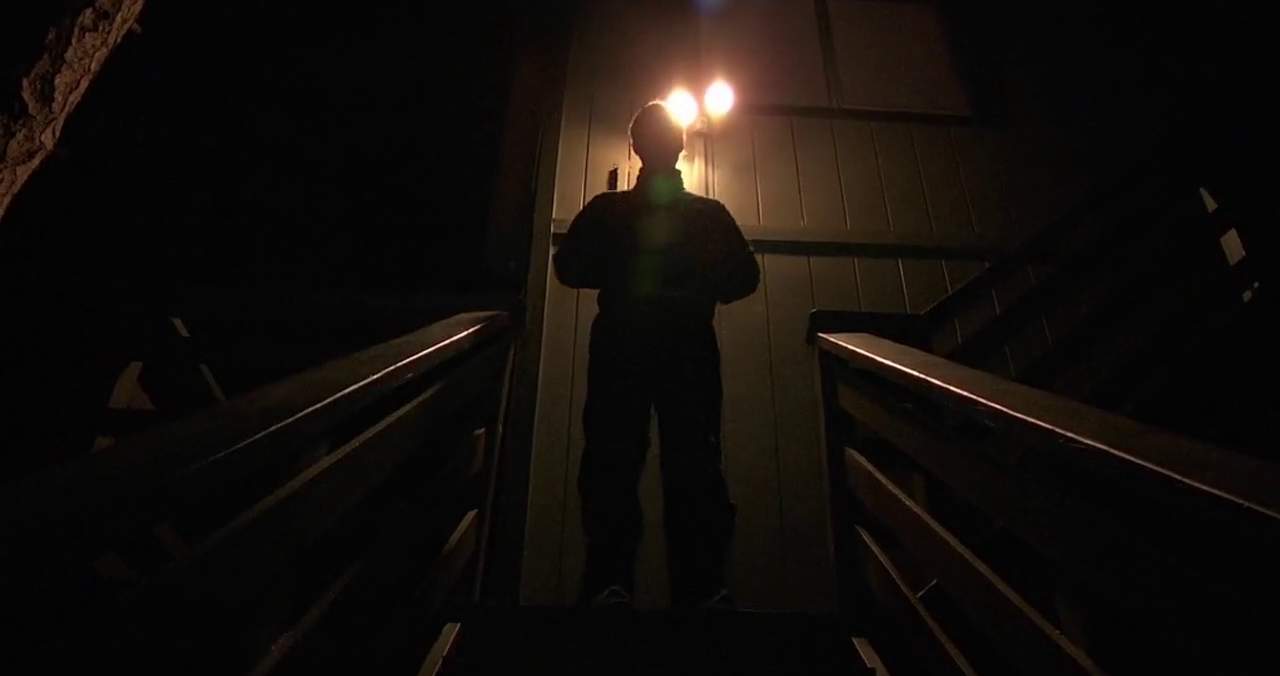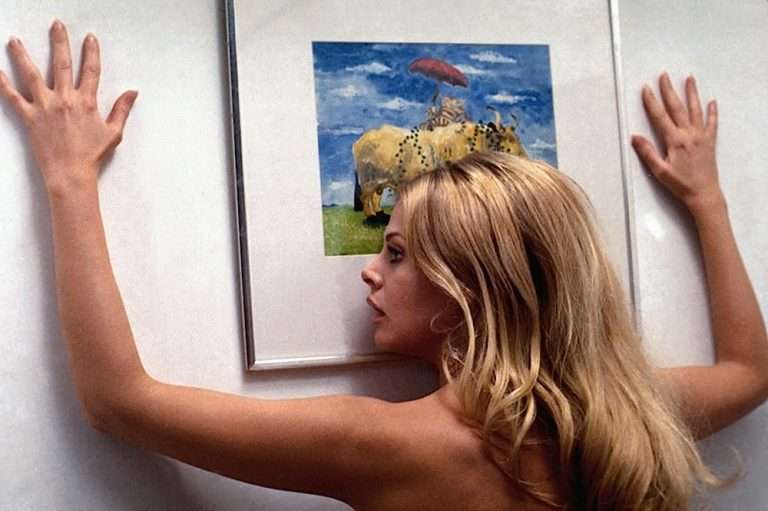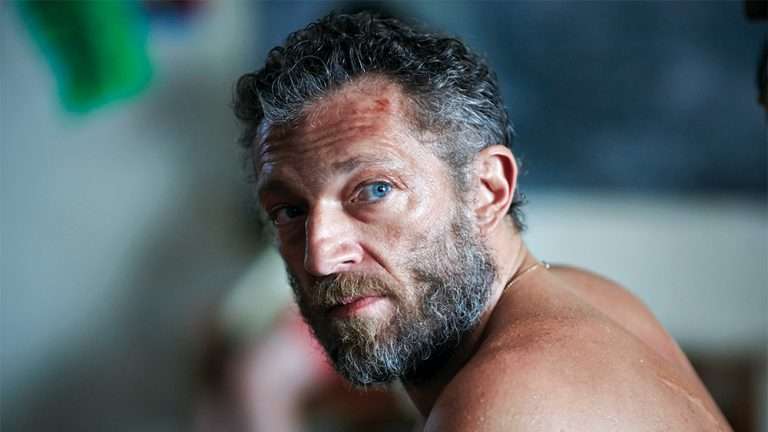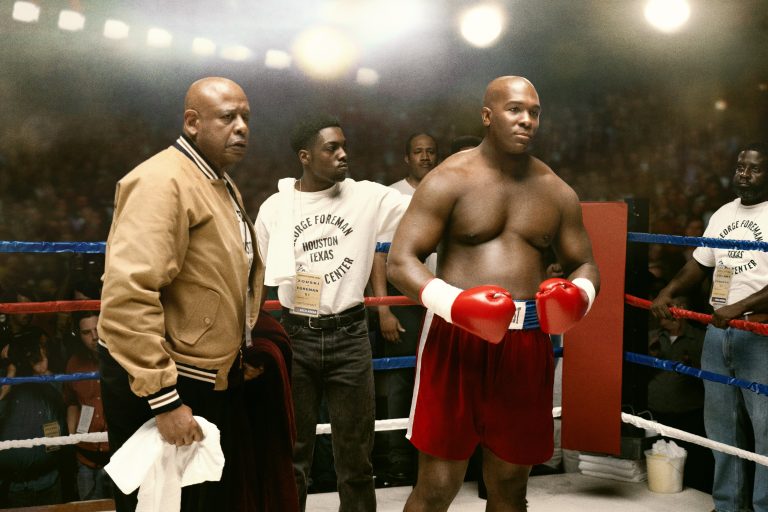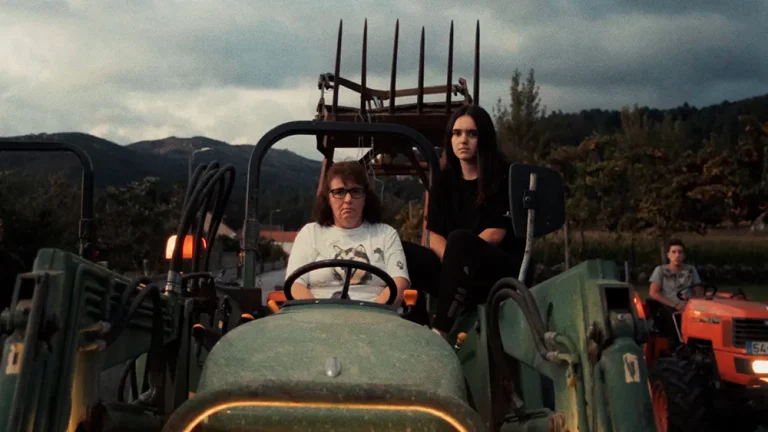The modern horror movement is here to stay. These last five years have proven that a fresh approach to the genre does not erode the essence of scaring people. The new-age filmmakers have brought their own experiences and style to the age-old ideas to leave their mark. Unsettling is a word that jumps out when we talk about the genre today. Contemporary inventions include a more patient and devious exploration of death, grief, and isolation. The psychological element remains strong in the list of the following works we present.
This list comprises titles we feel belong to this distinct subgenre of horror films that make you feel unsettled and anxious. These capture the consuming feeling of paranoia and anxiety to the hilt and in such a way that the feeling lingers with you long after you have watched them. Cinematic neurosis is a commonality in the list of the most unsettling horror films of the 2020s below. Happy reading!
Men (2022)
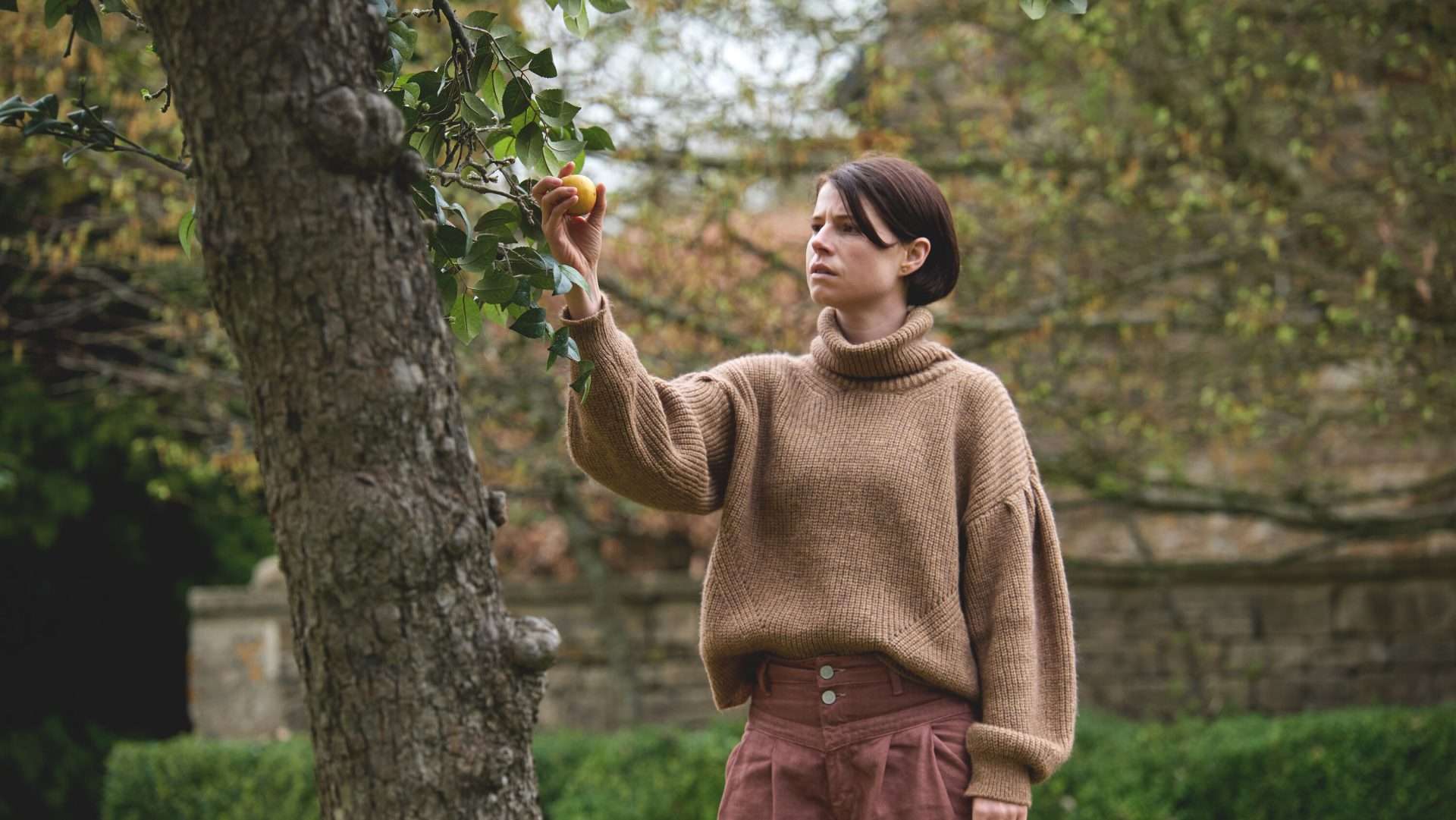
Alex Garland has experimented with his narrative styles without ever caring for a reaction. All he wants is for one, whether it be positive or negative. Men certainly evoke a very strong one, although there is still confusion in my mind if it is either of those two. It is the quintessential A24 feature of the year where the plot, story structure, and everything else that matters in films does not matter. All that does is an expression of artistic belief and the captain of the ship’s stretched imagination. Jessie Buckley and Rory Kinnear are the only two actors that matter in Men. While the former plays various shades of emotions in her complex yet undeniably rich turn, the latter plays horrifying caricatures of English countryside men.
Related: Men (2022) Movie Explained: Ending & Themes Analysed
His presence in almost every corner of the village Jessie’s Harper visits only dawns at you some twenty minutes in but stays with you for long after you have watched it. Imagine seeing the same face everywhere you go. The only thing worse is that they behave differently and more perversely than before. It is difficult to box Men into any sort of enclosed space. The interpretation of the work is so vast that doing so would be disrespectful. Garland has given all of us quite a thought piece that is as tender and vying for your attention as it is downright crazy and surreal.
Barbarian (2022)
Barbarian is another revelation from 2022 that has brought new talent to the fore. Zach Cregger developed an innocuous short story about contemporary gender dynamics and two strangers measuring each other on a rainy night in a double-rented Airbnb into a full-blown horror tale about the vilest vices a man can commit. His version of the genre’s legacy imbibes many different elements. Inspirations are taken from the works of geniuses like David Cronenberg, John Carpenter, and Wes Craven to arrive at a layered interpretation of Cregger’s imagination. The real horror vibes come at you in the form of an immensely impressive world-building exercise, where the house, that takes centerstage, becomes a well-measured vessel for his craft.
Beyond the rudimentary schematics of the Mother and the backstory, Cregger also touches upon the argumentative interface of colliding worldviews. His social commentary has a commanding control in not going overboard with the sensitivities involved. Barbarian is a mature, hybrid horror version of a film treading the fine line between a social experiment and exploring the horrors of darkness and vulnerability.
Smile (2022)
Despite the rising negative commentary about Smile relying on jump scares to get through, it makes its place on the list. I, for one, did not find that notion to be wholly true. Yes, the scares majorly were reliant on the idea of surprising you at the moment. But it is quite naive to think that it is possible to completely move away from that storytelling tool. Some stories just cannot be told without them and Smile benefits from the use of sudden appearances by its central demonic entity.
Related: Smile (2022) Movie Ending, Explained – What is the Mystery Behind the “Smiling” Curse, and Does Rose Break It?
Smile is about past wounds that could never heal and about a woman whose presence is imprisoned by that trauma. Sosie Bacon (yes, the offspring of Kevin Bacon) delivers one of the year’s best performances as Rose, hardly ever making you feel like she is not the character. She is consumed by the story as Rose and stays true to her deteriorating mental status as time goes on. Smile is creepy, unsettling, and wickedly unrelenting in making sure it made its place in this list and in the legacy of modern horror films that have set a decadal trend in filmmaking.
The Empty Man (2020)
The Empty Man is perhaps one of the strongest and most focused films about cult practices in recent times. David Prior’s impressive and courageous debut has the singular purpose to develop and weaponize the myth of its cult’s origin. Starting with a taut cold open, The Empty Man eventually moves on to create an illusion for the viewer in its narrative for a pacy finish. It is so beautifully layered that the viewer, like James, just cannot wrap their head around how the cult of the Empty Man takes over. Films about cults can prosper when the element of conspiracy is engaging enough.
James runs around town and beyond in a bid to satisfy the burning question of his former lover’s daughter. Amanda’s disappearance clears the way for similarly strange events that start to define James’ new life. His reality sinks deeper into the dark abyss that is specifically “constructed” for him. The Empty Man makes an immense attempt to keep its moving parts together and mysterious enough without ever feeling jarring.
Every time a new element is introduced in the storytelling to convolute the core conceit, it further intrigues you instead of confusing you. But not in the sense that takes your interest away. In the third act, we see the cinematic universe coming an entire circle and making an effort to leave you with some definitive answer and serious potential for a cult-classic franchise.
Speak No Evil (2022)
How do people come up with these strange concepts? European cinema is infamous for notorious pushing cinematic boundaries but Speak No Evil is a notch above its peers simply for the madness you watch on screen. The misanthropic tone is so diluted that it does not become an instant attraction. Yes, it remains an underlying precursor of things, but it never interferes with Christian Tafdrup’s inspired attempts to take control of his narrative devices. Hence, the collaboration between writing, sound, and direction is so pristinely in sync, it reminds one of an orchestrated opera. There is no way you can watch this with the sound on and without keeping your hands in front of your eyes.
Related: Speak No Evil (2022) Movie Explained: Ending & Themes Analyzed
Host (2020)
Host combines the found-footage format (Blair Witch, REC) with the action on-the-screen style (Unfriended, Paranormal Activity) in a devilishly frightening fashion. Say what you may, Host feels suffocating every minute of its runtime just a shade under an hour. It is one of the most overlooked films of the last few years. There are plenty of intelligent and ironically savage nods to the COVID pandemic as well in the film. The premise is a seance gone wrong over a Zoom call between six friends. They then experience the after-effects of a demonic spirit answering their call and “punishing” them for their “disrespect”.
Host uses a lot of jump scares and flashes in the dark to create scares. It functions mostly in the traditional old-school ways but uses them without the inherent predictability. We have some great inventions in weaponizing the unseen in Host. Rob Savage, the director, smartly uses his cast’s improvizations that they do on the respective locations to make the experience more realistic.
We also get the odd scary face of the spirit that is exacting revenge on them for breaking the seance. Overall, Host has all the components of a very entertaining watch and certainly makes meaningful inroads into the screen horror genre.
Impetigore (2020)
The lore of any foreign culture always has the potential to spring pleasant surprises. Every single one has a horror tale that can be realized in a dramatized form. Impetigore, or Woman of the Damned Land, does just that for a small part of the Indonesian traditions. The film’s mature tone and atmospheric setting give a good platform for the story to unfold. There are vague callbacks to The Wailing in certain scenes and the vibes overall lean in that direction too. For most parts, Anwar holds his own in the face of genre tropes. Impetigore exquisitely sits on the precipice of not revealing everything about its core mystery but giving enough to sink its hooks into us.
But through the flashbacks somewhere near the end, Anwar gives in and allows a conventional conclusion to the story to take over. Thankfully, it does not derail Impetigore, albeit slightly diminishing the overall appeal. It is a treat for horror fans who do not mind an eclectic cultural touch to the storytelling that might feel confusing but also can be potently surprising.
Possessor (2020)
Like father, like son probably did not have a stronger physical manifestation than the Cronenbergs. Possessor might be as much the father’s film as it is the son’s. The wild concept and visual similarities do not sway attention from the thoroughly enjoyable original execution. Andrea Riseborough stars as Tasya Vos, an assassin who uses other people’s bodies to complete her hits. The footprint of her being gradually vanishes until the point where fiction and reality become intertwined. Matters get worse when she gets trapped in the body of the possessed (Christopher Abbott as “Colin”) and must figure out a way to escape.
The disturbing reality of the film astonishingly allows a generous exploration of the characters and something meaningful that sits at the film’s core. Possessor is fully capable of driving you paranoid and getting under your skin. But it is also a genuinely inspiring creation that deserves your attention nonetheless.
The Dark and the Wicked (2020)
The Dark and the Wicked is arguably the most atmospheric film on the list. Its main source of wicked energy flows from the setting of the farm and how the siblings cope with their mother’s suicide. The chilling images and stark soundscape are a frightening combo. If there is one thing that director Bertino can be blamed for is maybe making the fabric of the narrative too dark. There are no redeeming parts that one could see from a distance or even hope to emerge anytime during the run.
That pushes the film squarely into the territory where it becomes a little inaccessible to the average viewer. For most parts, the plot moves like a formless and transient bee that stings without notice but with loads of venom. The style Bertino goes for is quite artsy and reminds me of Ari Aster. Unfortunately, it comes without the sudden jolt of energy that Aster brings to his works and that makes The Dark and Wicked a bit dull.
Swallow (2020)
Swallow ranks as an unsettling movie about the horror of pregnancy. Although it would not typically fit into the current scheme, Swallow offers quite a unique perspective on the central issue. Haley Bennet’s magnetic performance makes you gasp, cry, and squirm, all in the space of 90 minutes. For most parts, Swallow is a roller coaster ride with no clear direction. There is however a strong creative choice in the second act that steers it on the right path. Coming of age is not the most appropriate word to label Hunter’s story. But it should be applicable here owing to how the film ends.
Closure about one’s origins and identity also plays heavily in the thematic chain. Swallow deafens conventional horror stereotypes to nonetheless produce a compelling story told in a bold fashion that is quite close to a version of body horror. Not everyone’s cup of tea!
Titane (2021)
Talk about polarizing movies, Titane split the movie-watching world into two square halves. Some loved and worshiped it. And then some could not stand watching it. Body horror is often a tricky genre to do justice to. The margins to go wrong are so thin that most directors end up erring on the side. Titane is quite gruff when it comes to the visual style. Being a French film, it certainly enjoys wearing the sexuality of the central character, Adrien on its sleeve but not in an exploitative way. The weird yet enchanting confluence of man and machine makes a conclusive interpretation nearly impossible.
Related: Titane Movie Explained: Ending, Themes & Identity Crisis Analysed
But it for sure puts the story in an unsettling space that tackles more sincere issues about pregnancy, relationships in one’s childhood, and issues of abuse. Titane is not about taking charge but about introspection into past trauma through the prism of the future. It glorifies Julie Ducournou’s ability to preserve the enduring and perennial human condition at the core of her storytelling effort.
Saint Maud (2020)
Before Morfydd Clark became the butt of the jokes for playing Galadriel in Rings of Power, she gained worldwide recognition for her breakout role in Saint Maud. A24 always promises an experience in cinema that very few other brands can boast of providing. It gives a platform to visionary auteurs who are not afraid to experiment with the medium and create new fabrics for their works. Rose Glass brings to us an insipid combination of the horrors of religion and faith in her directorial debut. Clark plays Katie, an isolated and devoted care worker for an aging yesteryear star (Jennifer Ehle as “Amanda”).
Her hand is guided by a supernatural force trying to “save Amanda’s soul”. But her call is answered by a sinister entity that leads to a moment of reckoning for her soul. Saint Maud is deliciously vague in outlining its structure. Although it would be unfair to call it “plotless”, it has the fleeting flexibility to play around with the concept and veer the storytelling toward the unsettling. It perfectly qualifies to be on the list and is currently streaming on Netflix.
Mad God (2022)
Phil Tippett’s most compelling work is arguably a ground-breaking moment for motion picture cinema. Tippett has worked on many successful franchises all his life but his rendition of his dreams and nightmares results in a truly terrifying and satisfying cinematic marvel. His manic, nightmarish universe has multiple settings with vague connective tissues. Probably the only thing common to them is the surrealism in realization and the complete and utter loss of warmth.
The dream-like landscape is a potpourri of freakish creatures right out of your worst nightmares. They’re somehow not answerable to one superior entity and do not mind each other. They don’t look alike – probably not even belonging to the same species – and neither is their nature similar. Even without a central conflict, ‘Mad God’ remains compelling and engaging enough to last its runtime.
Incantation (2022)
If one thought that the found footage subgenre could not surprise, Incantation is the second entrant on the list that proves the naysayers wrong. It is yet another title here that uses the darkness of a culture’s decrypt corners to feed its story. Despite being a true representative of the horror genre, Incantation moves at an almost meditative pace. It takes its sweet time to establish the stakes and how it will play with your head. Once that happens, there is an off chance you turn off the screen if you are not an avid horror film aficionado. Incantation is an enticing prospect for those who live to see another great horror story.
Related: Incantation (2022) Movie Explained: Ending, Themes, & The Trauma Of The Past And Karmic Retribution Analysed
The Night House (2020)
The strongest form of fear is one that cannot be seen, heard, or understood – but can be felt. That nightmarish reality beckons you in The Night House, another addition to the collection of films that realize their high-end concepts with an uncompromising finish. David Bruckner extracts fear from Beth’s (played brilliantly by Rebecca Hall) loss of her husband. Her almost paranoid experiences of something that she interprets as her husband are presented in a remarkably nuanced and tender manner. The effort here by Bruckner is to keep the narrative as far away from the antagonist and squarely on how Beth navigates the mystery of her husband’s odd death.
Hall is the star of The Night House, seamlessly making the transition from terrified, to angry, and eventually to confused. That is precisely how you feel as a viewer as well. That motley of emotions is perhaps not as attractive as the familiar elements of a rom-com or an action-thriller but certainly enticing enough to leave a mark for those prepared to try something different.

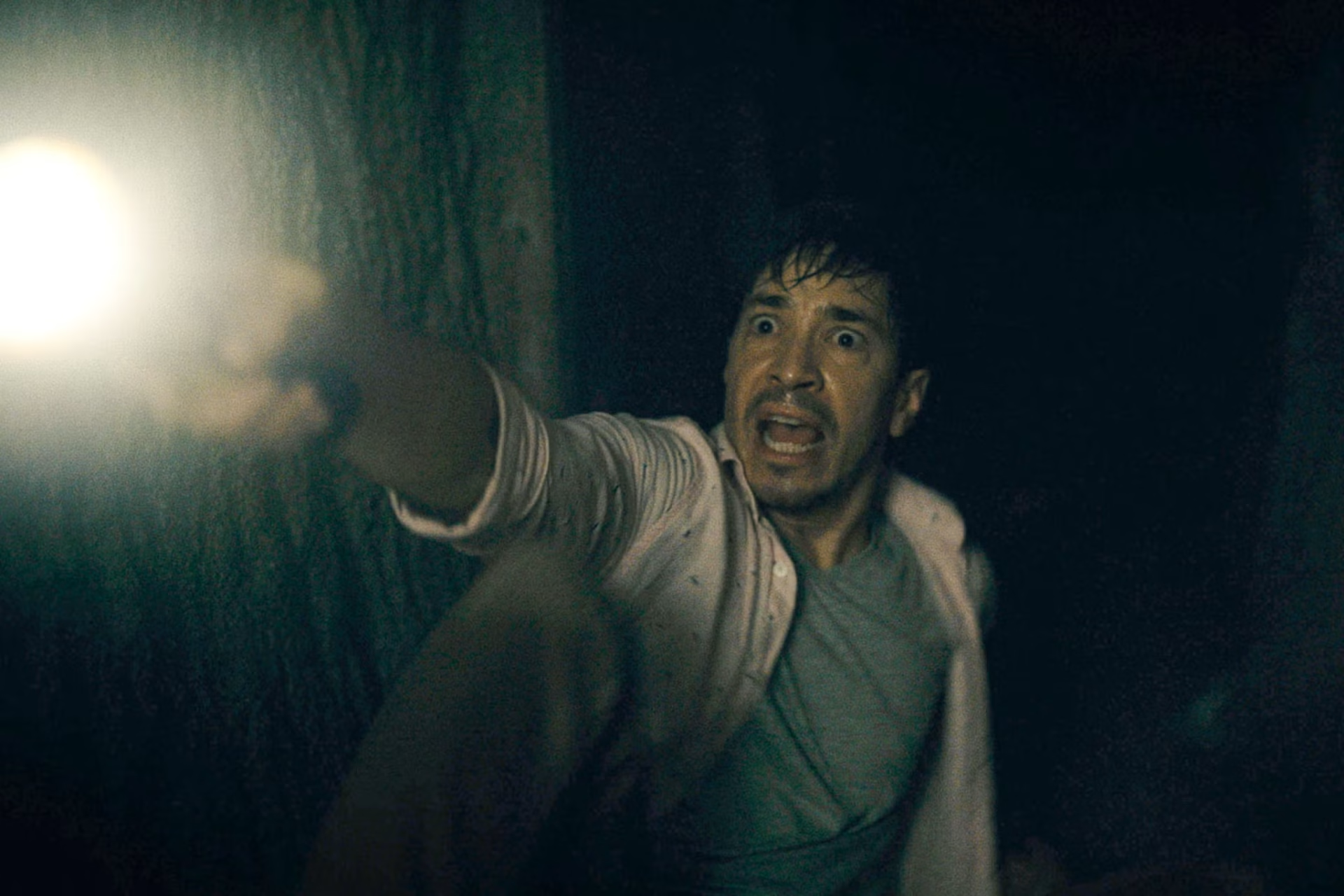
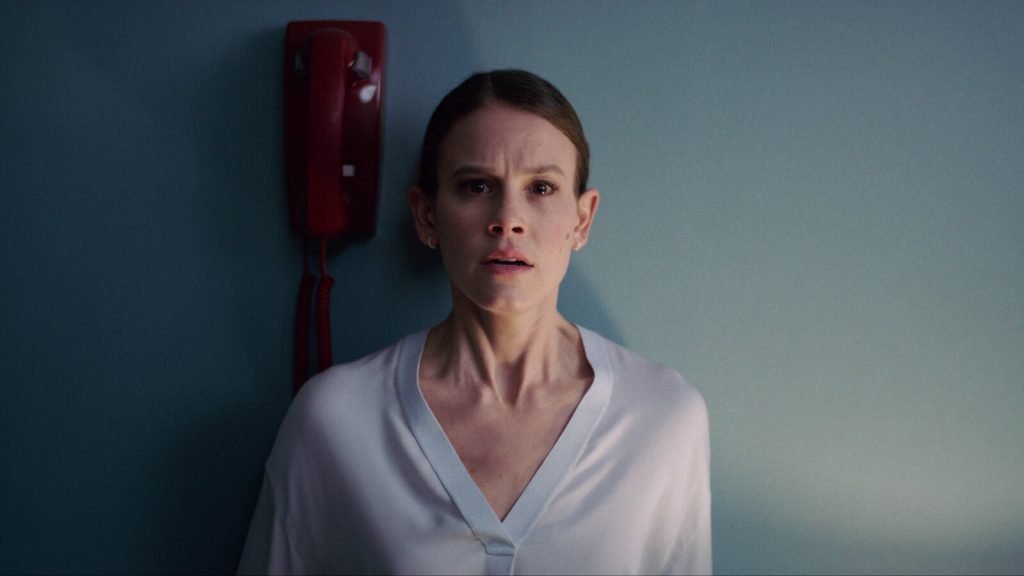
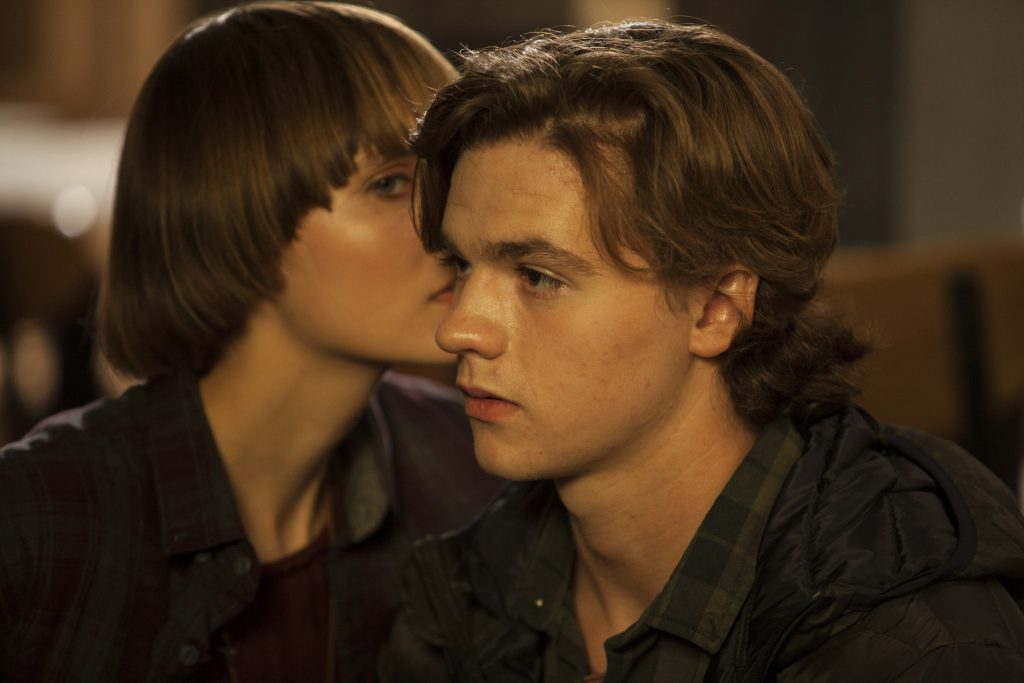
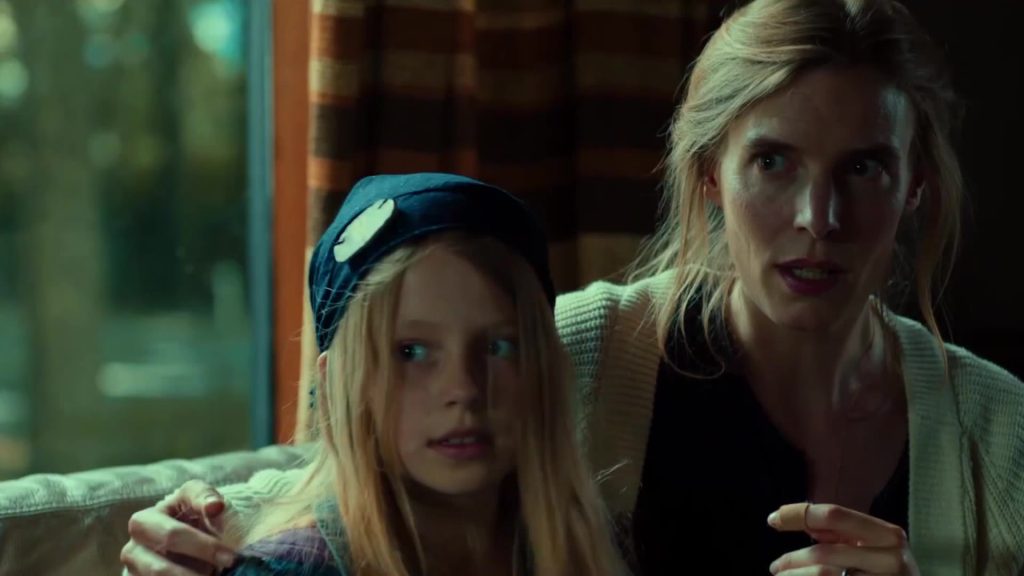
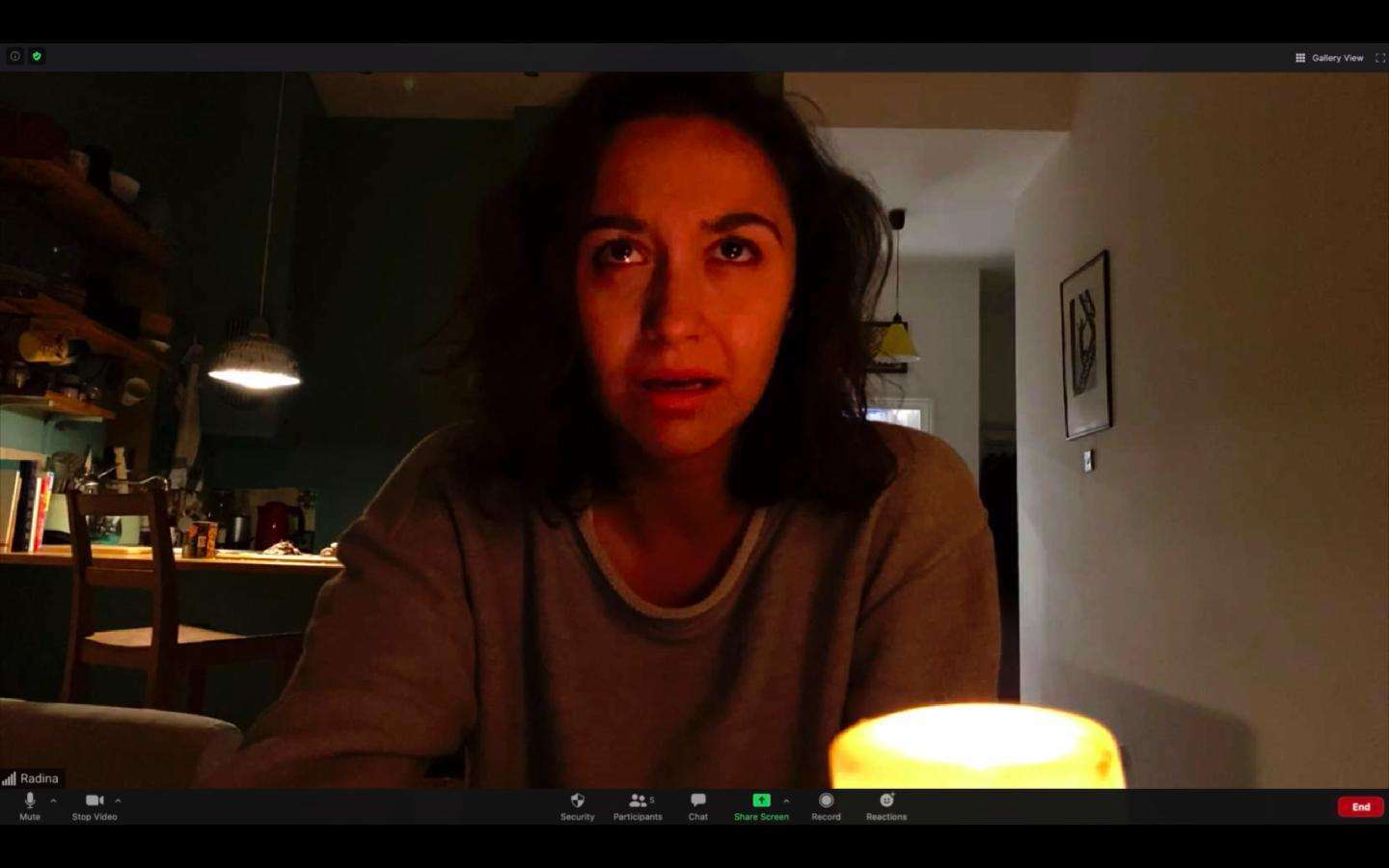
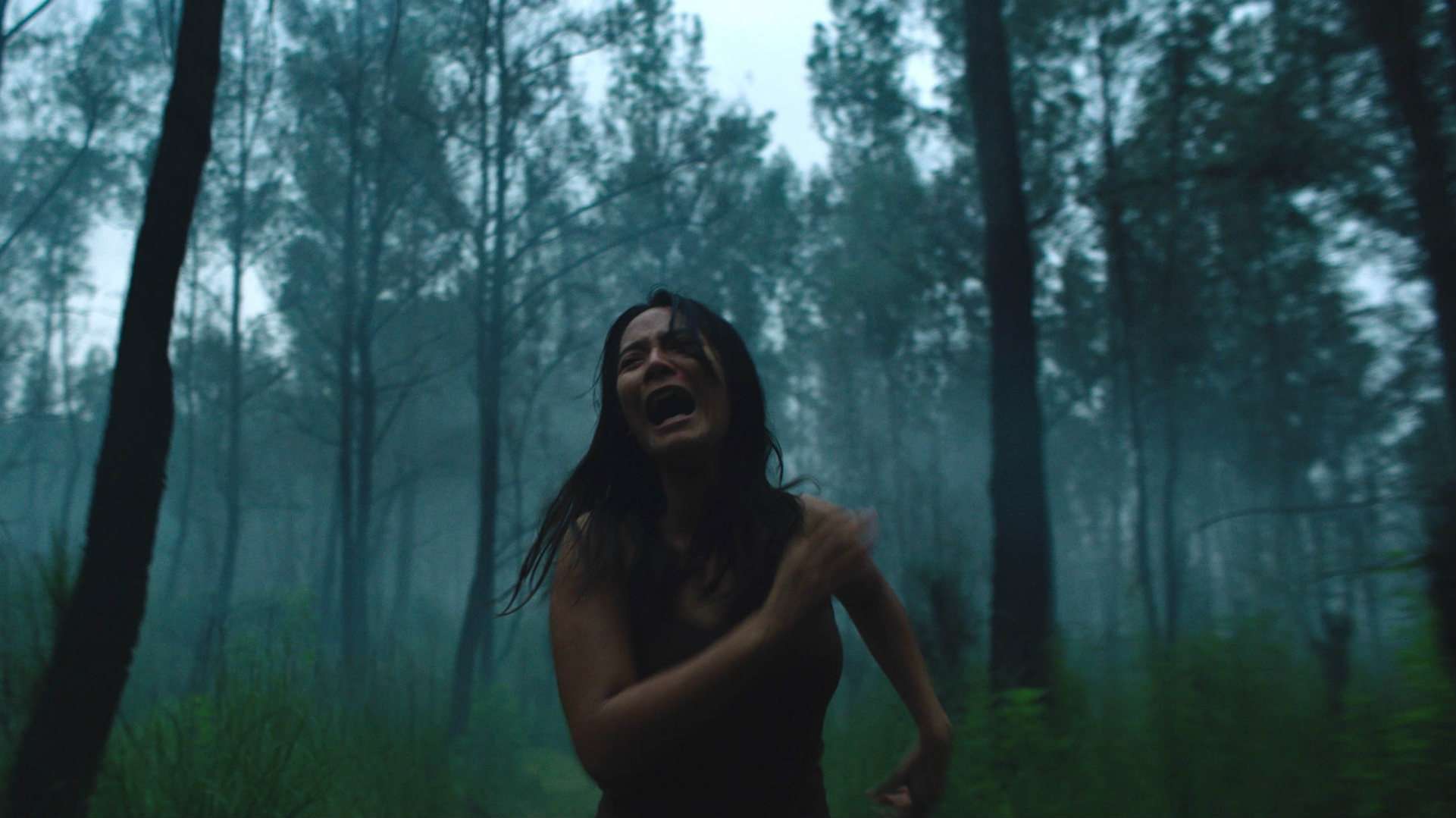
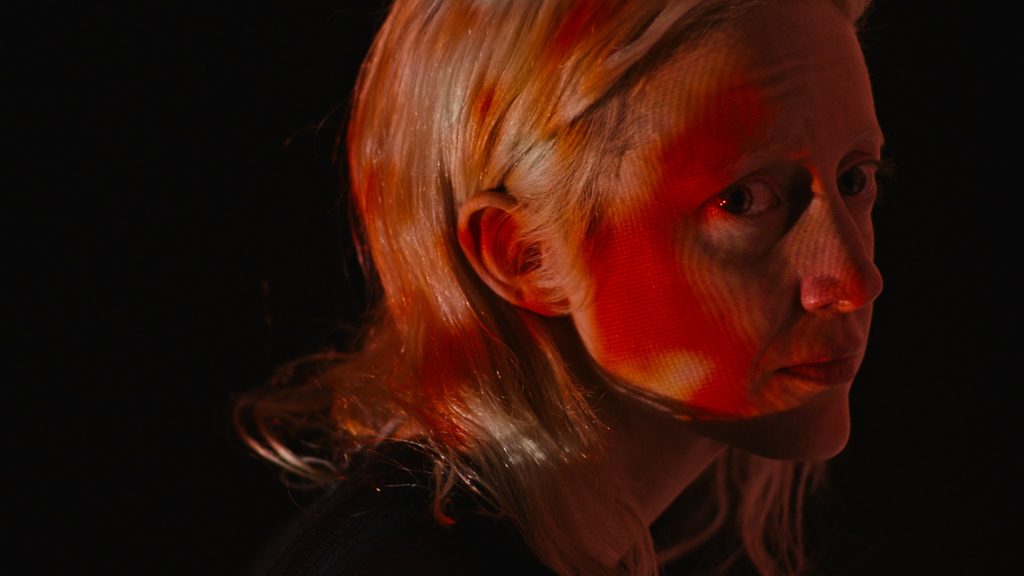
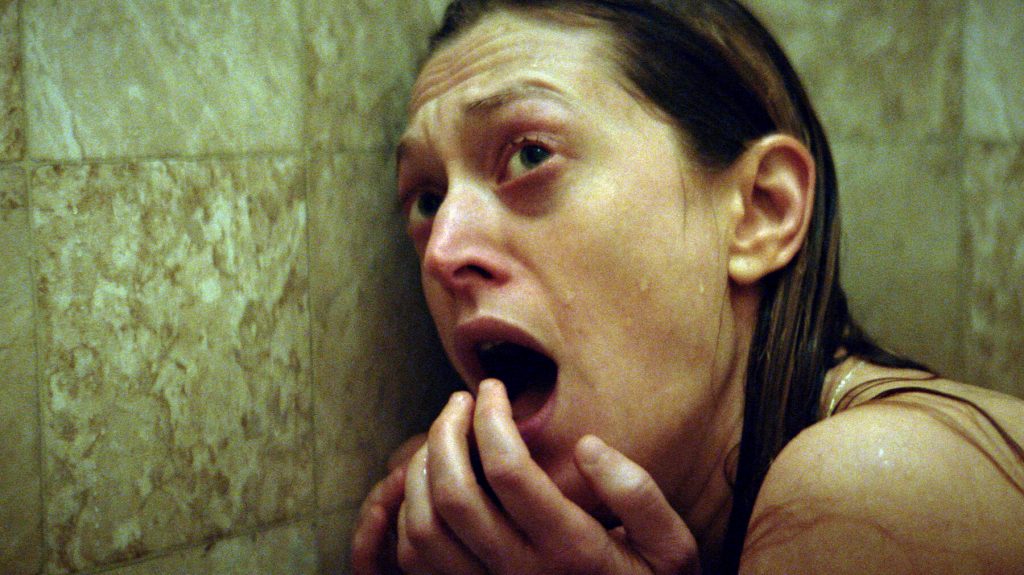
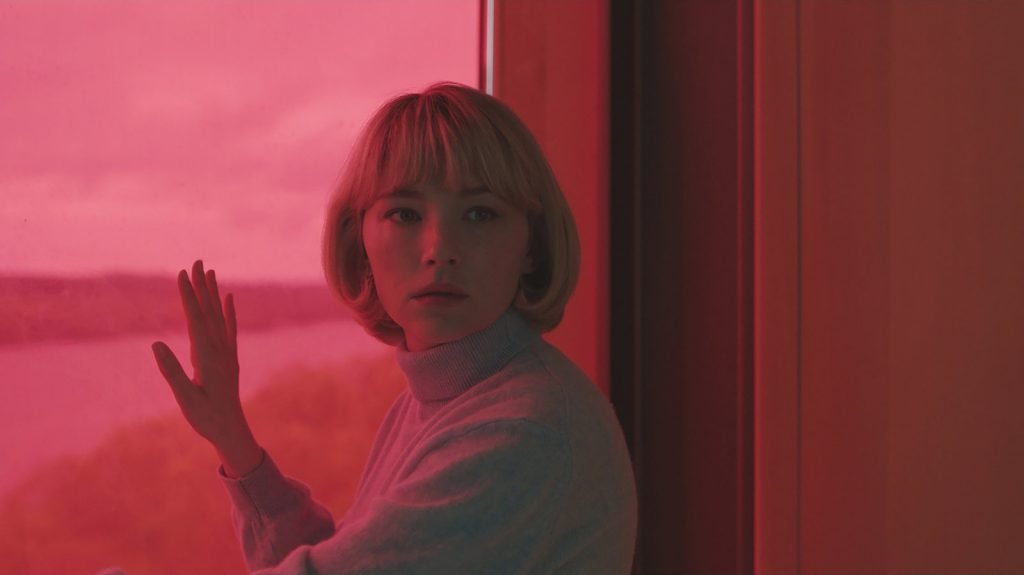
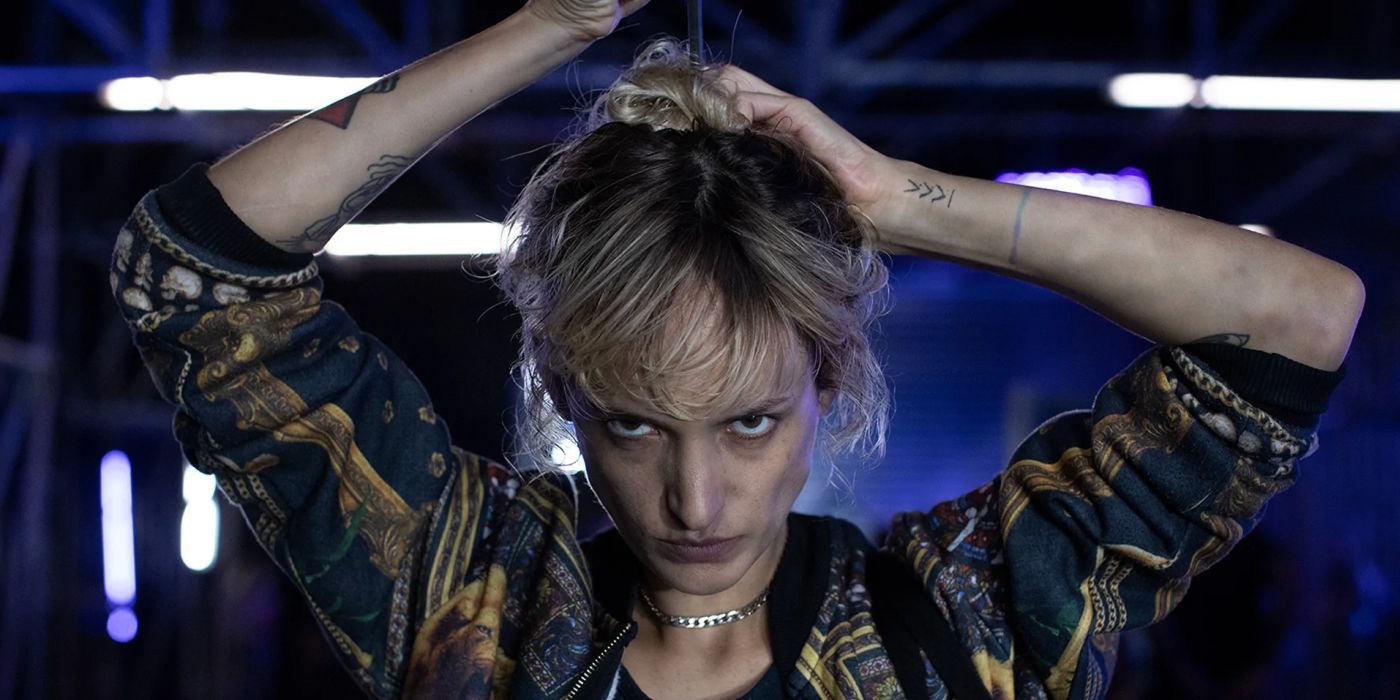
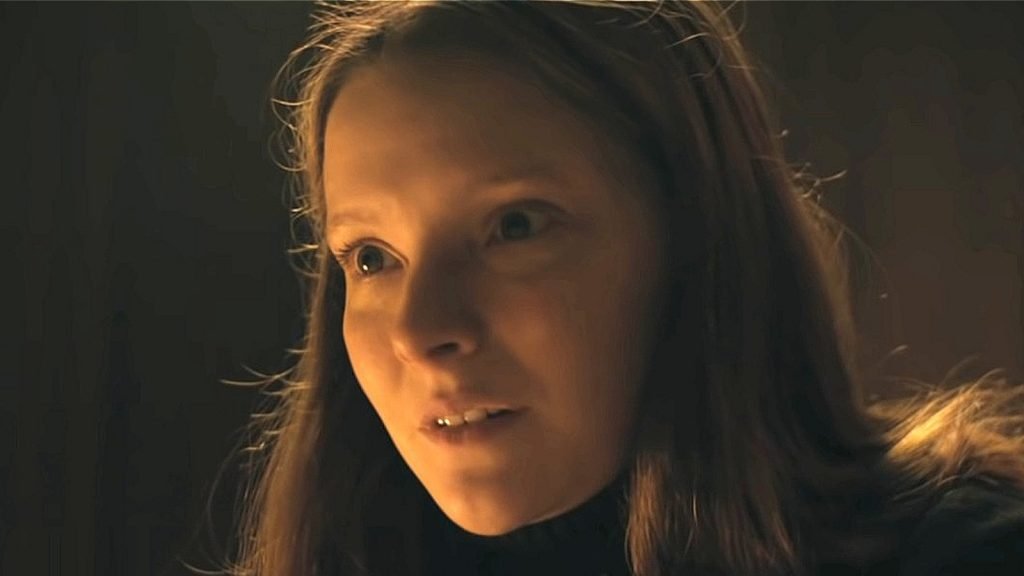
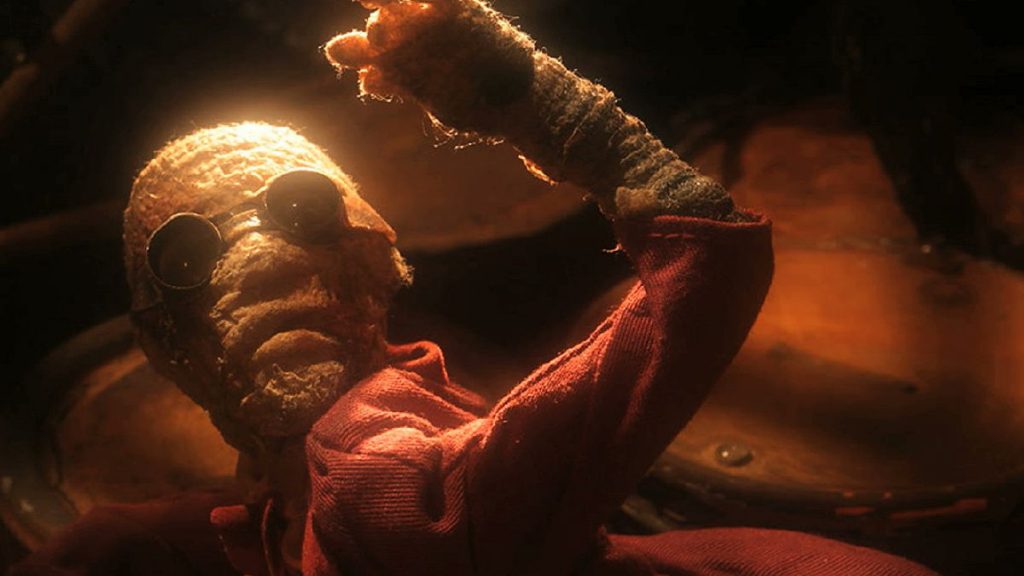
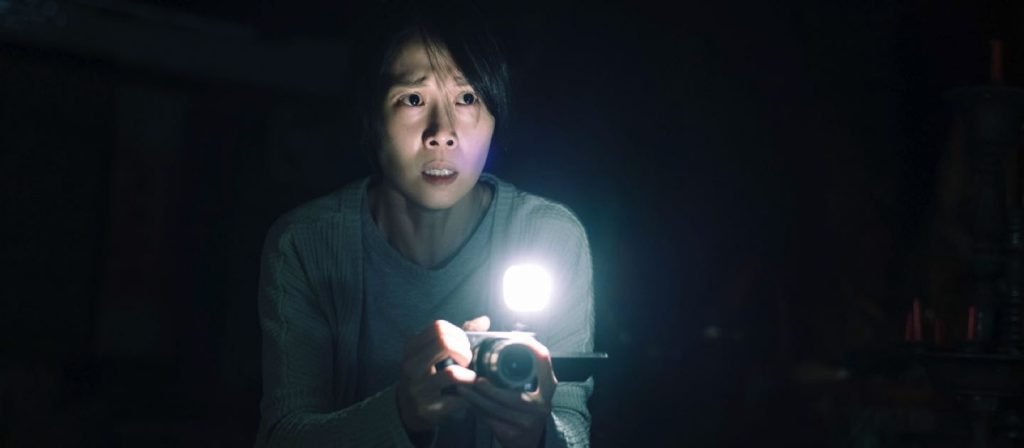
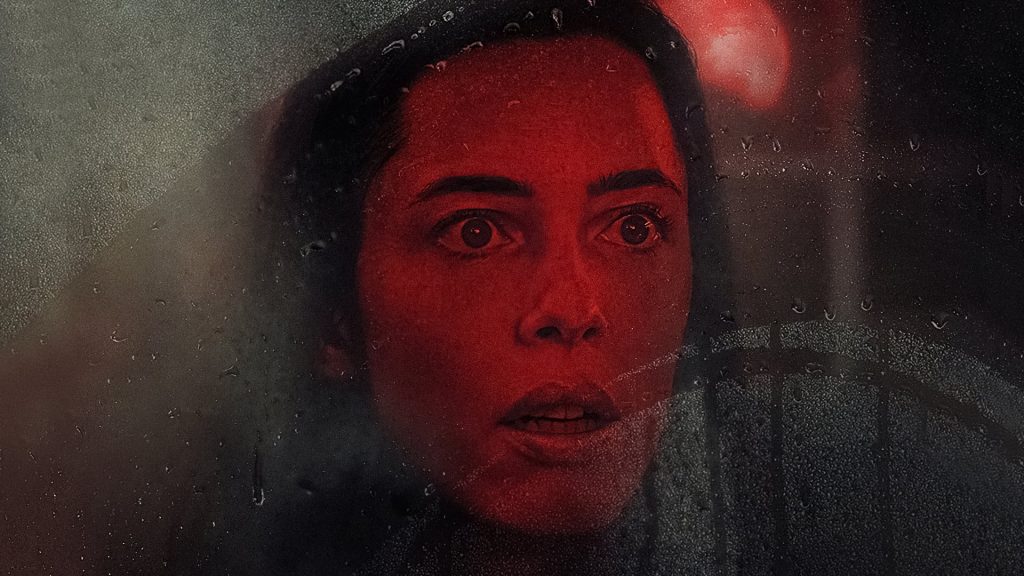

![A Christmas Story Christmas [2022] ‘HBO MAX’ Review – An Okayish Sequel to the Beloved Holiday Classic](https://79468c92.delivery.rocketcdn.me/wp-content/uploads/2022/11/A-Christmas-Story-Christmas-2022-768x432.jpg)
